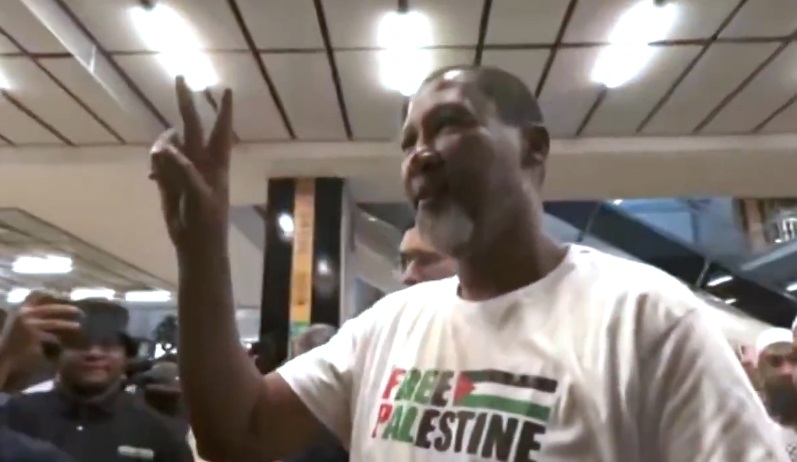
Mandela’s Grandson Returns Home After Israeli Deportation, Alleges Mistreatment
According to Associated Press, two Muslim women among the detainees claimed their hijabs were forcibly removed and they were ordered to strip naked in front of Israeli soldiers, treatment they said was not applied to women from other nationalities.
JOHANNESBURG, SOUTH AFRICA – OCTOBER 9, 2025,
Nelson Mandela’s grandson, Nkosi Zwelivelile “Mandla” Mandela, has returned to South Africa after being detained and deported by Israeli authorities, following his participation in a humanitarian flotilla bound for Gaza.
He alleges that he and fellow activists were subjected to degrading treatment while in Israeli custody, claims that Israel has denied.
Mandela was part of the Global Sumud Flotilla, a multi-national convoy of ships attempting to deliver humanitarian aid to Gaza. Israeli naval forces intercepted the flotilla in international waters last week, diverting the vessels to Ashdod port and detaining dozens of activists.
Upon arrival in Johannesburg on Tuesday night, Mandela said he and five other South Africans were handcuffed with cable ties, paraded before cameras, and held in poor conditions for six days before being deported through Jordan. “It was a humiliating experience,” he told reporters. “But it is nothing compared to what Palestinians endure daily.”
The South African government condemned the incident, calling Israel’s actions “a grave violation of international law” and demanded accountability. Pretoria has been one of Israel’s most vocal critics since filing a genocide case against Israel at the International Court of Justice (ICJ) in December 2023. Mandela and other activists believe this legal stance made them targets for harsher treatment.
The Israeli Foreign Ministry rejected the allegations, saying detainees were treated lawfully and accusing the flotilla organizers of “provocation and propaganda designed to delegitimize Israel and aid Hamas.” It added that the naval blockade of Gaza remains “a necessary security measure.”
The Global Sumud Flotilla included activists from more than 40 countries, among them politicians, faith leaders, and human rights advocates. Its interception has drawn sharp criticism from humanitarian organizations and several European lawmakers, who called for independent investigations into Israel’s handling of the mission.
Mandela, a Member of Parliament and chief of the Mvezo Traditional Council, has long been an outspoken supporter of the Palestinian cause. Before joining the flotilla, he described Israel’s occupation of Palestinian territories as “worse than apartheid,” a comparison that has repeatedly strained diplomatic ties between Pretoria and Tel Aviv.
Human rights groups have likened the flotilla’s interception to the 2010 Gaza Freedom Flotilla raid, which ended in international condemnation and renewed debate over the legality of Israel’s blockade.
For South Africa, the latest incident further fuels public anger and underscores the country’s growing role in global advocacy for Palestinian rights. As Mandela put it upon his return, “Our ordeal is over, but the suffering of the Palestinian people continues. The world cannot remain silent.”